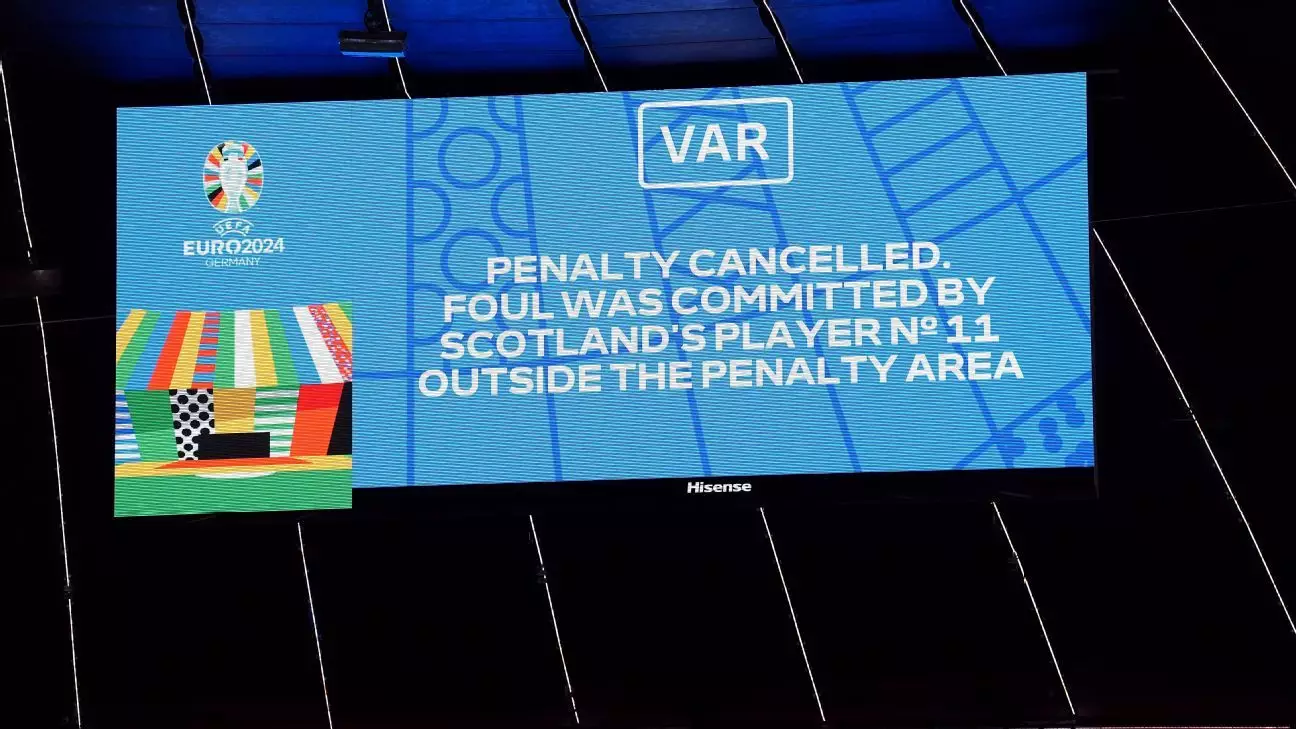In a significant move towards evolving football officiating, the International Football Association Board (IFAB) has recently taken steps to expand trials for an innovative system known as Football Video Support (FVS). This system, which allows coaches the right to challenge on-field decisions, presents a fresh alternative to the conventional Video Assistant Referee (VAR) method, which has been subject to considerable scrutiny since its inception. The FVS was successfully piloted during the U20 and U17 FIFA Women’s World Cups earlier this year and has been tagged as a more cost-effective solution aimed particularly at leagues with limited resources.
Unlike VAR, which is conducted solely through a dedicated video assistant referee monitoring the match from afar, Football Video Support creates an interactive dynamic by empowering coaches to initiate challenges in real-time. Each coach is allowed up to two challenges per match, providing a level of strategy and engagement that has previously been absent from officiating in football. This system is particularly aimed at leagues that operate with minimal technology – typically with no more than four cameras. This innovation is expected to be especially beneficial for competitions like the Women’s Super League, which faces complications in implementing VAR due to diverse stadium sizes and configurations.
Pierluigi Collina, the chairman of FIFA’s referees’ committee, recently assured stakeholders that the trials from the earlier competitions would be meticulously analyzed to gauge the effectiveness and reception of FVS. Many national associations have expressed interest in participating, signaling a growing momentum for adopting this alternative framework in lower-tier leagues that struggle with financial or technical constraints.
A critical aspect that Collina emphasized is the distinction between FVS and traditional VAR. One must maintain realistic expectations, particularly regarding the system’s limitations due to the fewer camera angles available compared to VAR setups. For instance, detecting offside positions will be inherently challenging; FVS may only identify indisputable offsides without access to various angles that are usually afforded by VAR’s expansive camera layout. This underlines a shift in focus back to the on-field authority of referees, who are placed back in the position of making definitive judgments rather than relying heavily on video analysis.
FVS operates on a streamlined setup: with a maximum of around five cameras, it requires the match referee to assess video replays after a coach’s challenge without being pre-informed of any errors prior to observing the footage. This removes the traditional VAR protocol where officials could be alerted to clear and obvious mistakes, promoting a more traditional and, arguably, a more authentic flow within the game.
Moreover, the IFAB has also turned its attention to several additional trials aiming to refine various aspects of the game. Among these are initiatives particularly relevant to goalkeepers and the timeframe allowed for holding the ball, with plans to award the opposition a corner or throw-in if a keeper exceeds an eight-second control period. This aligns with a broader trend in football governance to streamline play and reduce time-wasting tactics, which have been criticized in recent seasons.
Besides these operational changes, discussions have also revolved around further trials concerning captaincy and referee interactions, proposing that only team captains should be permitted to converse with referees. The adoption of semi-automated offside technology and potential referee body camera use has also been on the agenda, each contributing to an overarching narrative of transparency and enhanced engagement between players, officials, and fans alike.
The IFAB’s upcoming Annual General Meeting scheduled for March 1 is poised to yield significant decisions regarding these ongoing trials, with changes potentially rolling out ahead of the next football season. As FVS and other proposed innovations take shape, they promise to signal a pivotal evolution in how officiating is approached in football. With the capacity to blend technology and the essence of the game, there lies an exciting future where transparency, fairness, and engagement drive the sport forward. Football is set to embrace a new era, one that may redefine how decisions are made and reviewed during matches.


Leave a Reply